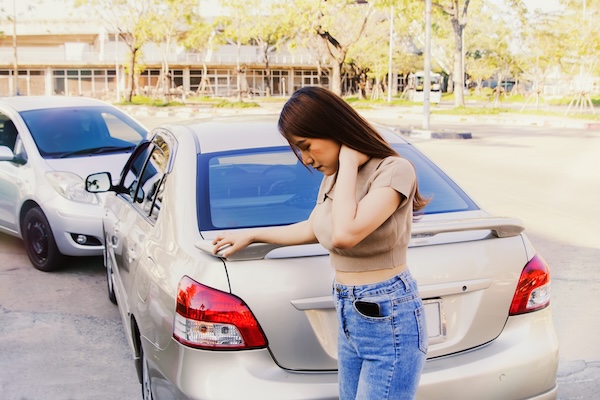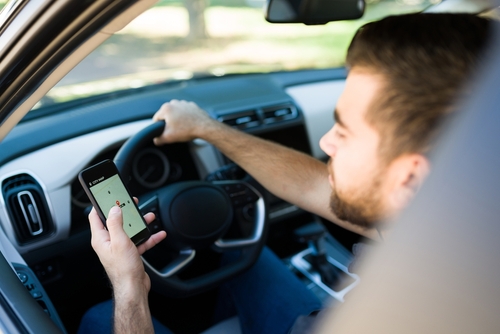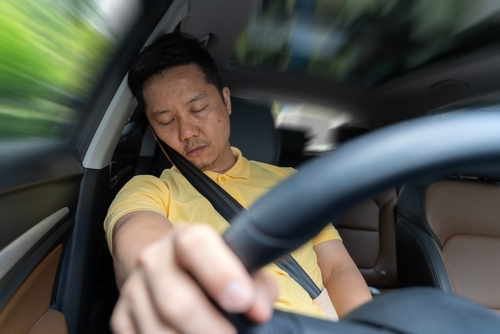Accidents involving parked cars can be more complex than they initially appear, especially when questions of fault arise. While it’s commonly assumed that the driver who hits a parked car is always at fault, the reality is that several factors can influence liability, particularly if the parked car was illegally parked. Working with an experienced Atlanta car accident attorney can provide valuable guidance in these situations.
This guide will demystify the question of who is responsible if you end up hitting an illegally parked car.
Understanding Fault in Parked Car Accidents
Determining who is at fault in a parked car accident is not always straightforward. While it is often assumed that the driver who hits a parked car is automatically at fault, this is not always the case. Several factors come into play, particularly when the parked car is not legally positioned. Understanding these nuances is crucial for navigating the aftermath of such incidents.
General Rule: The Driver Who Hits the Parked Car
In most scenarios, the driver who hits a parked car is considered at fault. This is because drivers are expected to maintain control of their vehicles and avoid obstacles, including parked cars. Whether you are driving in a parking lot, on a street, or in a residential area, hitting a stationary object usually indicates a failure to exercise proper caution. As a result, the driver who collides with a parked car is generally liable for any resulting damages.
Exceptions: When the Parked Car Shares the Blame
However, the situation changes when the parked car is positioned illegally. If a car is parked in a no-parking zone, obstructing traffic, or blocking a driveway, the owner of the parked vehicle may share some responsibility for the accident. For instance, if a car is parked illegally on the shoulder of a busy road and is struck by a passing vehicle, the parked car’s owner could be found partially at fault due to their violation of traffic laws. In such cases, the fault is not solely on the driver who hit the parked car but may be shared or even shifted depending on the circumstances.
Impact of Parking Laws on Fault Determination
Parking laws vary by jurisdiction, but their impact on fault determination in accidents is significant. If the illegally parked car is clearly violating local traffic ordinances, such as parking in a fire lane or a loading zone, it could affect the distribution of liability. Insurance companies and courts often consider these laws when determining fault. A driver who hits an illegally parked car may argue that the accident would not have occurred if the car had been legally parked. This argument can influence the outcome of fault assessment and affect any claims for damages.
Factors That Affect Fault Determination
Several factors can influence how fault is determined in accidents involving parked cars. Understanding these factors is essential for assessing liability and navigating insurance claims or legal proceedings.
Legality of the Parked Car’s Position
One of the most significant factors is whether the parked car was in a legal parking spot. A car parked in a designated parking area is generally considered legally parked, and fault typically lies with the driver who hits it. However, if the car is parked in a restricted zone, such as a no-parking area, fire lane, or blocking a driveway, this could affect fault determination. An illegally parked car might share responsibility for the accident because it created an unsafe condition.
Visibility and Obstruction
The visibility of the parked car also plays a crucial role. If the parked vehicle is obscured by poor lighting, inclement weather, or is hidden around a blind corner, the driver who hits it may argue that it was not reasonably visible. In these cases, the conditions surrounding the accident are taken into account to determine whether the driver had enough time to react and avoid the collision.
Driver Behavior and Negligence
The actions of the driver who hits the parked car are closely examined to assess negligence. Factors such as speeding, distracted driving, or impaired driving can significantly influence fault determination. If the driver was not adhering to safe driving practices, they are more likely to be held liable for the accident. Conversely, if the driver was driving responsibly but could not avoid the illegally parked car, fault may be more evenly distributed.
State and Local Laws in Georgia
In Georgia, state and local traffic laws significantly impact how fault is determined in accidents involving parked cars. Georgia follows the principle of comparative negligence, meaning that fault can be shared between parties based on their respective levels of negligence. For instance, if a driver hits an illegally parked car, the car’s owner could be found partially at fault for contributing to the hazardous situation.
Under Georgia’s comparative negligence rule, an injured party can seek compensation only if they are less than 50% at fault for the accident. This rule means that even if both parties share some responsibility, as long as one party is less than 50% at fault, they can recover damages, albeit reduced by their percentage of fault.
Steps to Take After Hitting a Parked Car
If you hit a parked car, it’s important to act quickly and responsibly to ensure the situation is handled properly. Taking the right steps can help you avoid legal issues and facilitate any insurance claims.
Stop and Assess the Situation
Immediately stop your vehicle and assess the situation. Check for any damage to both your car and the parked car. Even if the damage appears minor, it’s crucial to remain at the scene. Leaving the site of the accident without reporting it could lead to charges of hit-and-run, which carry serious legal consequences.
Attempt to Locate the Car’s Owner
If possible, try to locate the owner of the parked car. This might involve checking nearby buildings or businesses to see if the owner is present. If you can find the owner, exchange contact information and insurance details. This step can help facilitate a smooth resolution and prevent any misunderstandings later.
Call the Police
If you cannot find the owner or if there is significant damage, contact the police to report the accident. In many jurisdictions, including Georgia, you are legally required to report accidents that involve damage above a certain threshold or if there are injuries. A police report will document the incident, which can be useful for insurance purposes and determining fault.
Document the Accident Scene
Take clear photos of the damage to both vehicles, the position of the cars, and any relevant street signs or road conditions. Documentation is key in supporting your account of the incident and can be valuable evidence if there are any disputes about the accident later on. Include photos of any parking violations if the car was parked illegally.
Notify Your Insurance Company
Inform your insurance company about the accident as soon as possible. Provide them with all the necessary details and any documentation you have gathered. Timely reporting is essential for processing claims and ensuring you meet all policy requirements. Your insurer will guide you on the next steps and advise if any additional information is needed.
Speak With an Experienced Atlanta Car Accident Attorney Today!
If you’re confused about who is seen at fault for hitting an illegally parked car, our team at Buddoo & Associates can help answer any questions you have.
Contact us at 404-870-3557 about your car accident claim ASAP!








